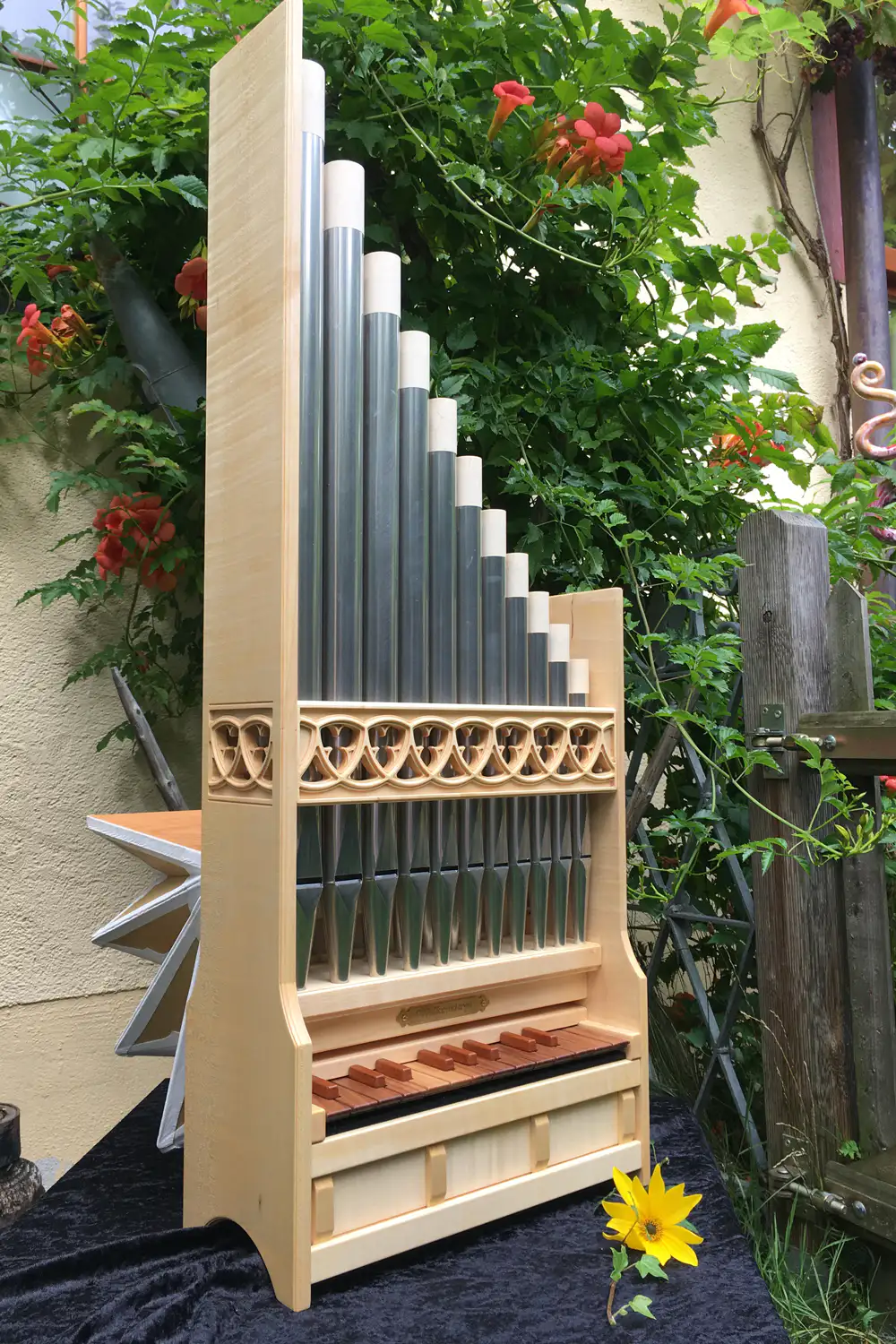Faszination Portativorgel
Der ausdrucksvolle Klang der gotischen Portative, Organetti und Positivorgeln:
Wiederentdeckt und neu interpretiert, entstehen in unserer Werkstatt bezaubernd ästhetische kleine Orgeln mit großem Klang nach historischem Vorbild.
Viel Vergnügen beim Besuch unserer Seiten!
Stefan & Annette Keppler

Über unsere Instrumente
Unsere Portative und Positive werden in handwerklich hervorragender Qualität in eigener Werkstatt aus ausgesuchten, europäischen Hölzern und hochwertigsten, seit Jahrhunderten im Orgelbau bewährten Materialien, gefertigt.
Aktuelles
Neu: Portativorgel „Bacella“
„Baroncelli Polyptychon“, Giotto di Bondone, Florenz, Anfang 14. Jh.
Neu: Großes Organetto „Fiala“
Gotisches Clavicytherium
Istanpittarello for Organetto (C. Lapalme)
Fiona Kizzie Lee – Organetto „Gracia“
„Rondeau“
(C. Cooman: „Novas Cantigas“, 2014)
Catalina Vicens – Organetto „Huelgas“
Cantigas de Santa Maria CSM 377
Ernst Stolz – Organetto „Faenza“
Regensburg Tage Alter Musik
Ausstellung – Mai 23-25, 2026
Utrecht Festival Oude Muziek
Ausstellung – Sep 03-05, 2026
Schwäbisch Haller Sackpfeifertage
Ausstellung – Feb 15, 2026
„QuickStart“ Organetto Einsteigerkurse
Mrz 14, 2026, Nov 07, 2026
Neue Notenhefte!
„Trienter Orgeltabulatur“
„Luftlinien“

